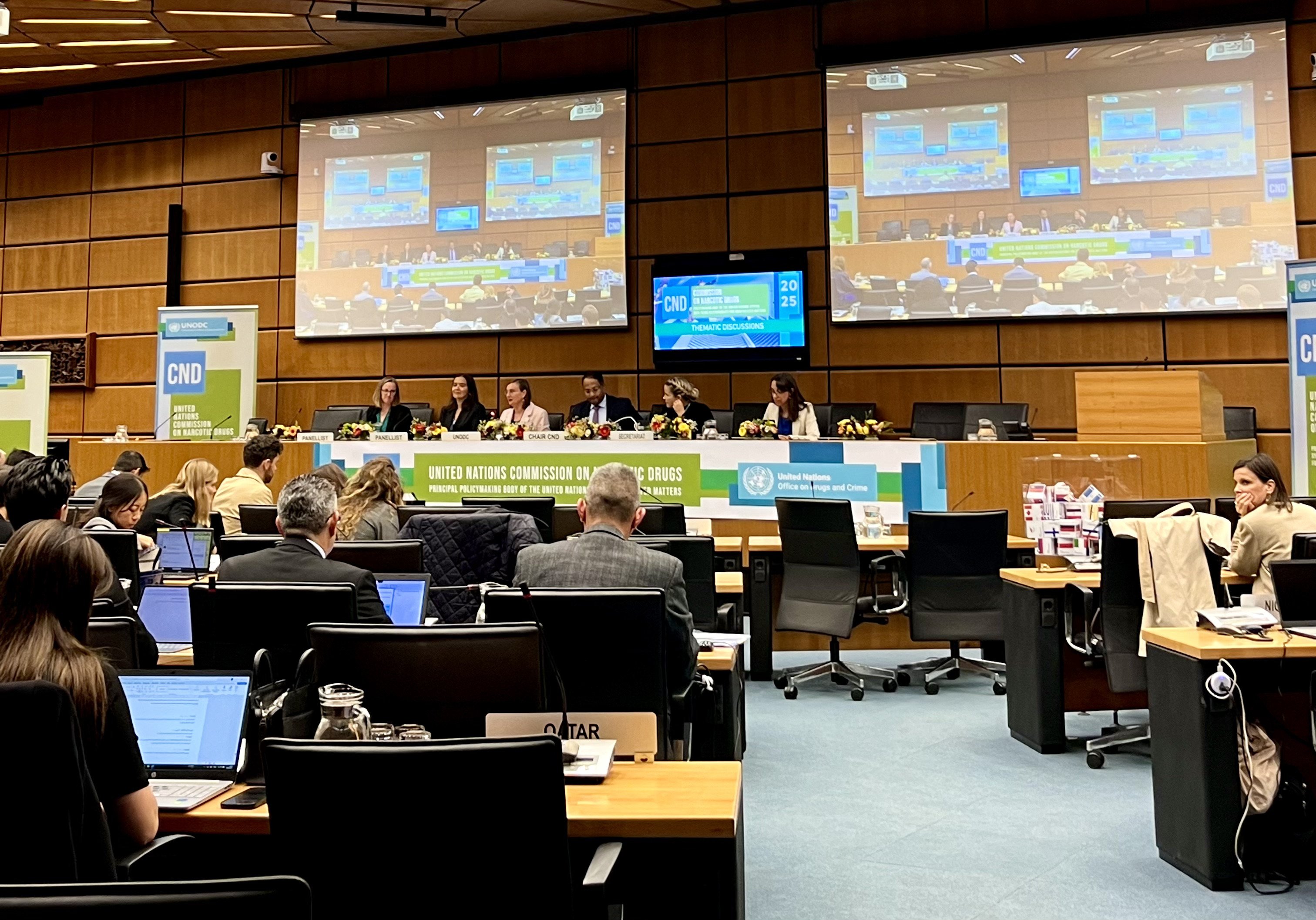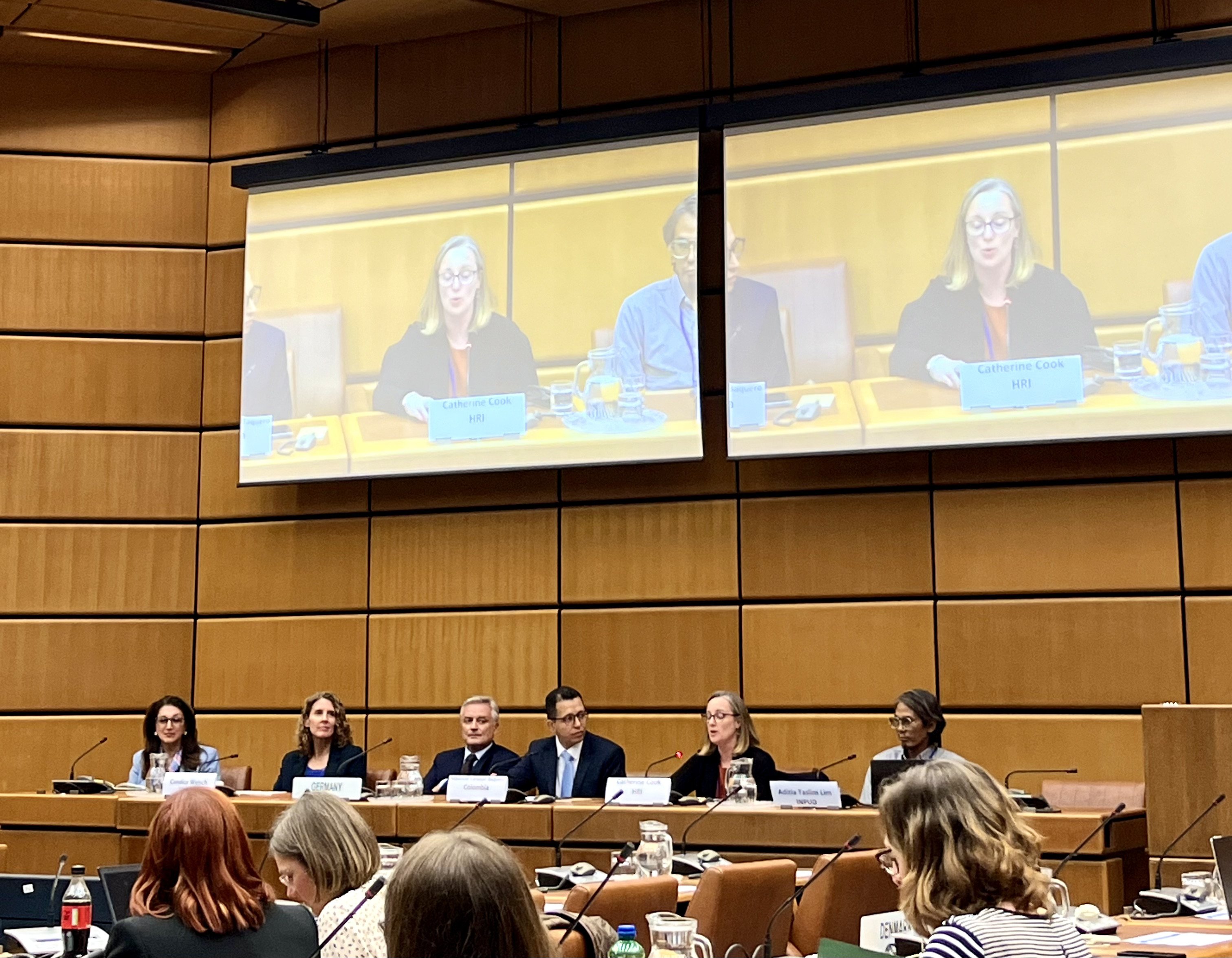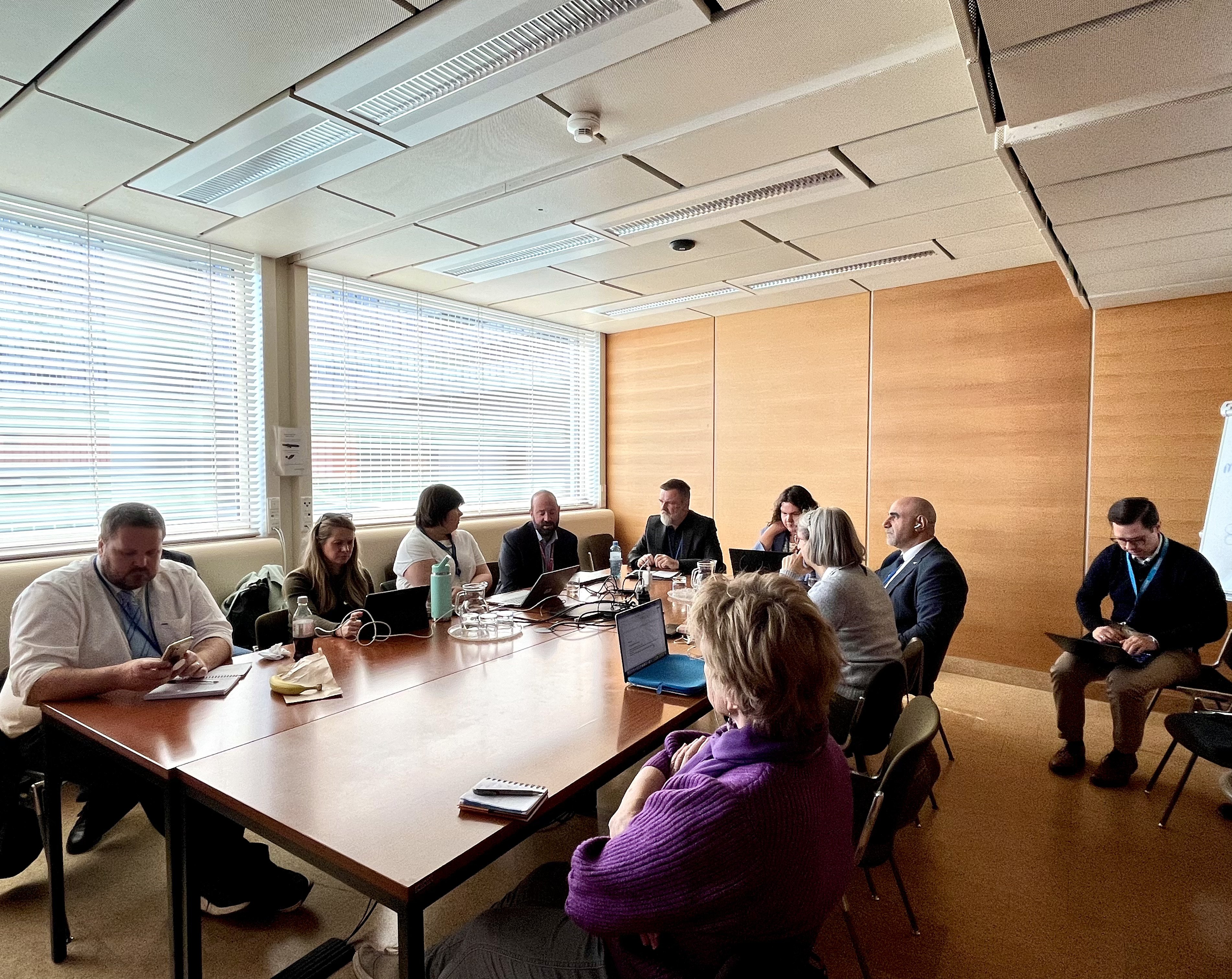CND Thematic Discussions 2025
From 30 September to 2 October the Thematic Discussions of the Commission on Narcotic Drugs (CND) took place in Vienna. They saw important contribution by civil society organizations, facilitated by the Vienna NGO Committee on Drugs (VNGOC), which selected 17 civil society. These experts brought their perspectives to the discussion, underlying the importance of civil society voices in such fora. The TDs are intersessional meetings that see the participation of Member States, experts, CSOs, and policy making branches working together to monitor the implementation of international drug policy commitments. This year, one of the key takeaways was the importance of prevention in an evidence-based and human-centered approach to drug policies. Each of the three days of thematic discussions focused on a specific aspect of this phenomenon, highlighting challenges and best practices among the different actors that took part in the discussion. Member States presented their strategies and priorities while CSOs had the opportunity to engage with them in a meaningful dialogue.
The first day focused on strengthening prevention within the context of public health spaces. Speakers highlighted the importance of international cooperation and the necessity to increase the efforts for more fundings. In particular, the focus was drawn to the most vulnerable groups that include young people, women, and imprisoned individuals, disproportionately affected by drug-related harms. Afternoon discussions addressed the urgent need to tackle rising drug-related deaths and the persistent stigma surrounding drug use. Civil society speakers called for innovative outreach methods, including digital engagement, and for removing barriers to care, especially for women and children. The INCB Secretariat emphasized the need for tighter monitoring and control mechanisms in drug manufacturing and shipping.
The second day focalized on drug use and its impact over the spread of communicable diseases such as HIV and Hepatitis C. Experts from UNAIDS, WHO, and national health authorities highlighted how social factors like stigma, criminalization and isolation of drug users by their own communities continue to hinder access to healthcare. A side event, held during lunchtime, expressed the CSOs’ urgency in reallocating resources from punitive law enforcement approaches toward more comprehensive health-related interventions that are also efficient in connecting the medical professional dimension with the community one. The afternoon session addressed the fast-evolving challenge of New Psychoactive Substances (NPS). Plural academical experts addressed the importance of real-time data, information sharing, and global coordination to anticipate the tendencies and the developments within the drug market. The INCB reaffirmed the need for early warning systems, joint training, and stronger partnerships with civil society to steadfastly respond to this ever-changing threat.
On the final day, discussions focused on the limited availability of internationally controlled medicines. Civil society voices raised awareness on the impact of extremely demanding regulatory barriers for the obtainment of certain controlled medicines and/or drugs,undermining the progress of medical research. In this context, the national health policy proposed in Uganda that consists of extensive training for nurses to sensibly prescribe morphine, was mentioned as a positive model. The session also tackled the growing threat of multi-drug toxicity and the role played by digital spaces in facilitating illicit access to specific substances. The WHO concluded this discussion by reaffirming its mandate to review and assess.
In conclusion, the Thematic Discussions of the CND reaffirmed the current commitments of the Member States in relation to global drug policy, which must be grounded in a collaborative, health-oriented and evidence-based approach. Civil society’s strong participation, coordinated by VNGOC, ensured that lived experiences, innovative practices, and community-driven insights remained at the heart of the debate. For the Alliance of NGOs on Crime Prevention and Criminal Justice, these discussions represent another vital moment where CSOs contribute to shaping a global drug policy more aligned with the principles of human rights, international cooperation and justice.
13 Oct, 2025


